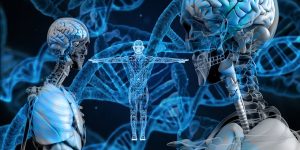Genealogy research is so popular these days that most people around the world are already aware of its function as a tool to reconnect with lost family members or discover your ancestral links. Typically when people think of DNA for ancestry investigation purposes, they often think about finding and connecting with long lost relatives, completing their family trees, and resolving identity and other psychosocial issues. But there are other benefits that can be derived from genealogy research. And while these benefits are not typically among the primary aims of DNA researchers, they sometimes have a significant impact on genealogy research clients and so they cannot be overlooked. We’ll explore five of them below.
Resolving Criminal Cases

Forensic police are gradually recognizing the value of genealogy research in their crime-solving efforts. Genealogy research has helped to bring cold cases to closure. One Genetic Genealogist started the trend by matching DNA evidence with samples in genealogy databases to solve a cold case. Her success is so celebrated that a television series has been dedicated to her crime-solving techniques.
Although the practice is currently the center of some amount of controversy many law enforcement experts have resorted to genealogy databases to help them track down criminals. Some genealogy DNA archives are accessible to law enforcement teams and as such have been used to identify criminals who evade prosecution for their crimes. In some cases, this data even absolves individuals who have been falsely accused of a crime. In other words, when you add your DNA to genealogy databases, you’re indirectly helping to solve a crime.
Health Impacts

People who investigate their biological past aren’t usually motivated by health factors. But many discover some shocking and sometimes life-saving health truths in the process. Genealogy DNA for instance can reveal an individual’s likelihood of carrying or developing certain ailments. A genetic DNA test client may for instance discover that a particular gene susceptible to cancer development is popular in his/her family line. This early warning can help many people to take precautionary steps to prevent illnesses or prioritize early and frequent testing to facilitate prompt detection and treatment.
Unexpected Relationships
People who search for relatives through genealogy investigations are typically interested in creating bonds with these long lost relatives. These relationships are anticipated spinoffs of genealogy searches. But some rather unconventional relationships can stem from genealogy research as people form bonds with others they meet along the journey. Additionally, even though it is usually used to find relatives, people have used genealogy research to track down long lost friends.
Preventing Accidental Incest
Ancestry checks help to prevent people from unwittingly winding up in romantic relationships with their relatives. It is not far-fetched to think that people who are disconnected from their blood relatives may wind up in romantic relationships with them. In fact, there are documented instances in which close relatives pursue romantic relationships without knowing that they are actually related until it is too late. That same possibility exists for their descendants.
Finding Famous or Wealthy Relatives
The furthest thing from most people’s minds when they initiate ancestry quests is the discovery of wealthy or famous relatives. But that is a very real possibility for each quest. Many people are amazed at the high profile biological connections they discover in the process. Some even discover celebrities in their gene pool while others discover royalty or famous historical characters. These discoveries often amuse, DNA researchers but they also stimulate a sense of pride in people and help to improve their sense of self-worth.
While Genealogy research has many obvious advantages and benefits, there are so many other spinoff benefits that users simply have to prepare themselves in case they encounter the unexpected.
















